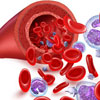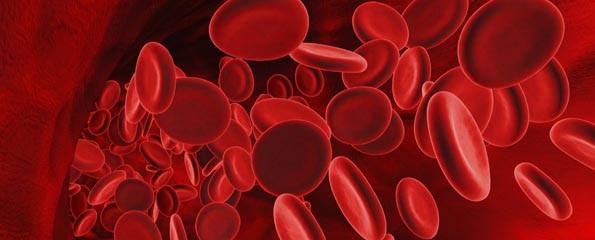Treat anaemia seriously
Up to one-third of patients undergoing surgery in Ontario have a treatable form of anaemia but are not optimally treated for it.
A paper published online in the Canadian Journal of Anesthesia says that hospitals that do treat patients with anaemia have better outcomes, including fewer blood transfusions and infections and shorter hospital stays.
A common option for management of anaemia has been blood transfusion. But blood transfusions are expensive and are associated with higher death and complication rates.
Dr. Gregory Hare, an anaesthesiologist at St. Michael’s Hospital, reported in today’s paper that hip and knee replacement patients who had blood transfusions stayed in hospital about two days longer than those who did not have transfusions. The stay was about three days longer for coronary artery bypass graft patients who had transfusions. The risk of infection more than doubled for patients who had transfusions.
Dr. Hare called anaemia a “silent killer.” Severe anaemia can cause low oxygen levels in vital organs and may result in heart attacks, strokes and kidney failure. He said early diagnosis of anaemia is important to give doctors sufficient time to treat it before surgery.
For example, 10.4 per cent of knee replacement patients diagnosed with anaemia less than seven days before surgery required transfusions, compared to 7.3 per cent diagnosed more than 21 days in advance. He said 41.3 per cent of coronary artery bypass grafts patients needed blood transfusions if diagnosed with anaemia less than seven days before surgery, compared with 22.8 per cent diagnosed more than 21 days in advance. “If given time to treat anaemia, we can avoid unnecessary transfusions and thereby improve quality of patient care,” Dr. Hare said.
St. Michael’s is developing a Centre of Excellence for Patient Blood Management, which would be one of the first of its kind in Canada and a global leader in patient care and in training, research and education for health care professionals.
Under patient blood management, physicians might prescribe certain drugs or dietary supplements to raise a patient’s hemoglobin level before surgery.
During surgery, doctors may use a variety of state of-the-art technologies and techniques to minimise blood loss, such as minimally invasive surgery, electrocautery (using heat to stop vessels from bleeding), an argon beam coagulator, which coagulates or clots blood to minimise blood loss, or intravenous iron and erythropoietin, which stimulate bone marrow to produce red blood cells.
The number of patients requiring blood transfusions after undergoing knee replacement surgery in Ontario in 2011 was less than half the number in 2002.
2002 was when the provincial government set up the Ontario Transfusion Coordinators (ONTraC), a province-wide blood management program administered by St. Michael’s Hospital. The goal of the program is to promote blood conservation and alternatives to transfusions for problems such as anaemia, a condition where a person has a reduced number of red blood cells or hemoglobin, the part of the red blood cell that carries oxygen.
ONTraC figures published for the first time today show the number of patients requiring blood transfusions after undergoing knee surgery fell from 24.5 per cent in 2002 to 10.1 per cent in 2011. The number requiring transfusions after undergoing coronary artery bypass grafting fell from 60.2 per cent to 25.2 per cent in the same time.
(Source: St Michael’s Hospital: Canadian Journal of Anesthesia)
More information
 | For more information on blood, blood types, blood tests, and blood donation and transfusion, see Blood. |
Dates
Tags
Created by:

 Login
Login














